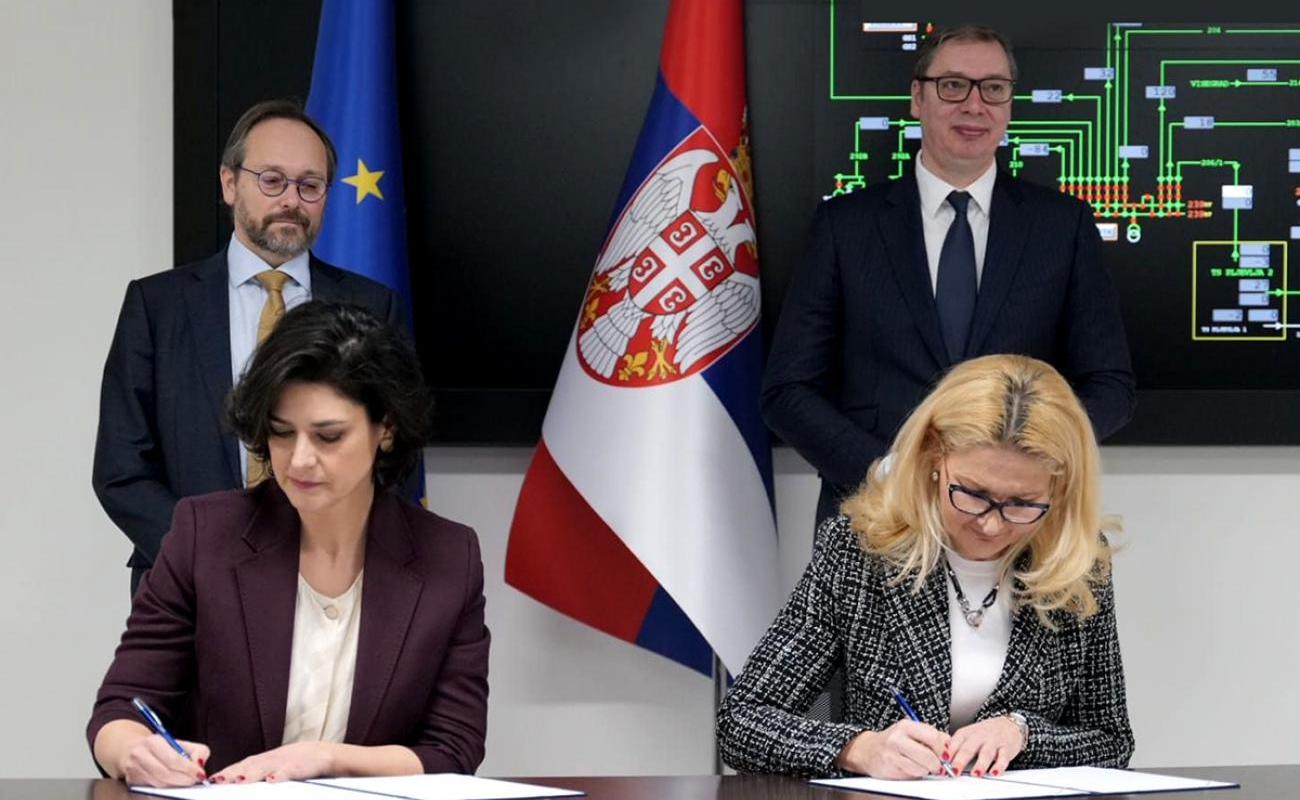EU energy support of €165 million to help most vulnerable households and SMEs in Serbia

The EU Ambassador in Serbia Emanuele Giaufret and President of Serbia Aleksandar Vučić witnessed today the signing of a €165 million budget support to fight the energy crisis in Serbia.
With this EU aid, announced by President of the European Commission Ursula von der Leyen in October 2022, vulnerable households and SMEs in Serbia will pay less for energy.
The agreement was signed by the Minister for European Integration, Tanja Miščević, and the Deputy Head of the EU Delegation to Serbia, Plamena Halačeva. The event was attended by the Minister of Finance Siniša Mali, Minister of Mining and Energy Dubravka Djedović and General Director of "Elektromreža Srbije" Jelena Matejić.
This immediate support is the first tranche of the ambitious €1 billion EU Energy Support Package to help the Western Balkans face the current energy crisis and promote its clean energy transition.
The €500 million for six Western Balkan partners will provide direct funds to the region’s economies through budget-support measures:
- To balance the increase in energy prices for businesses and the energy sector,
- To keep energy prices affordable, especially for vulnerable households,
- To support policy measures to accelerate the green energy transition.
The number of supported vulnerable households is expected to increase gradually up to 190,000 by the end of 2023. In practice, protected households with two members who pay electricity bills of around €35 will pay €15 less. Additionally, approx. 70,000 small and medium enterprises will be protected from high electricity bills to help them continue to operate despite increased electricity prices.
The second part of the package - another €500 million - will cover priority flagship investments to diversify energy supplies, boost renewable energy and improve energy efficiency. It will also promote the clean energy transition of the region and cut dependency on Russia’s fossil fuels.
Serbia will benefit under this tranche of EU funds in the form of a new Windfarm in Kostolac and the reconstruction of the Vlasina hydropower plant.
EU Ambassador Giaufret said: "The financial agreement for the energy support package is a concrete example of EU solidarity towards Serbia and its citizens. The funds will be used to help vulnerable families and entrepreneurs to cope with the energy crisis, enhance energy security in Serbia, and support the government’s energy roadmap and the energy transition. The EU is fully committed to the Western Balkans."
President Vučić stated: "Today, what was signed represents 1% of Serbian annual budget income. The EU granted this money from their taxpayers; it is important that our people know that. Our trade exchange with the EU reached €40 billion, recording a 27.7% growth compared to 2021. It also represents 60% of our total international exchange. People should know that we pay our professors, doctors, and other public workers from this support."
